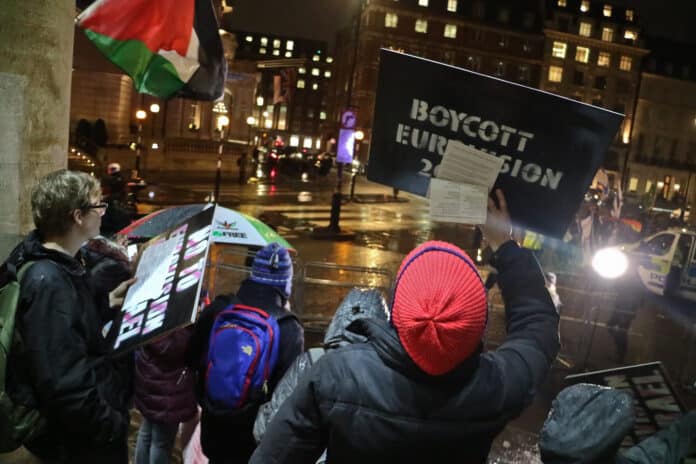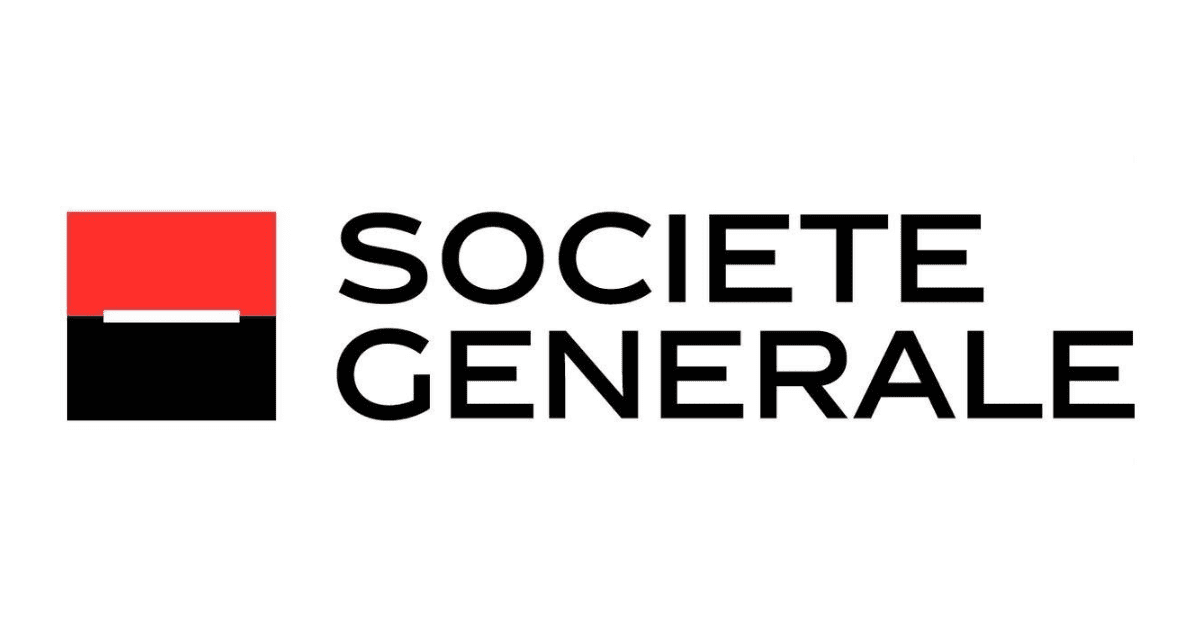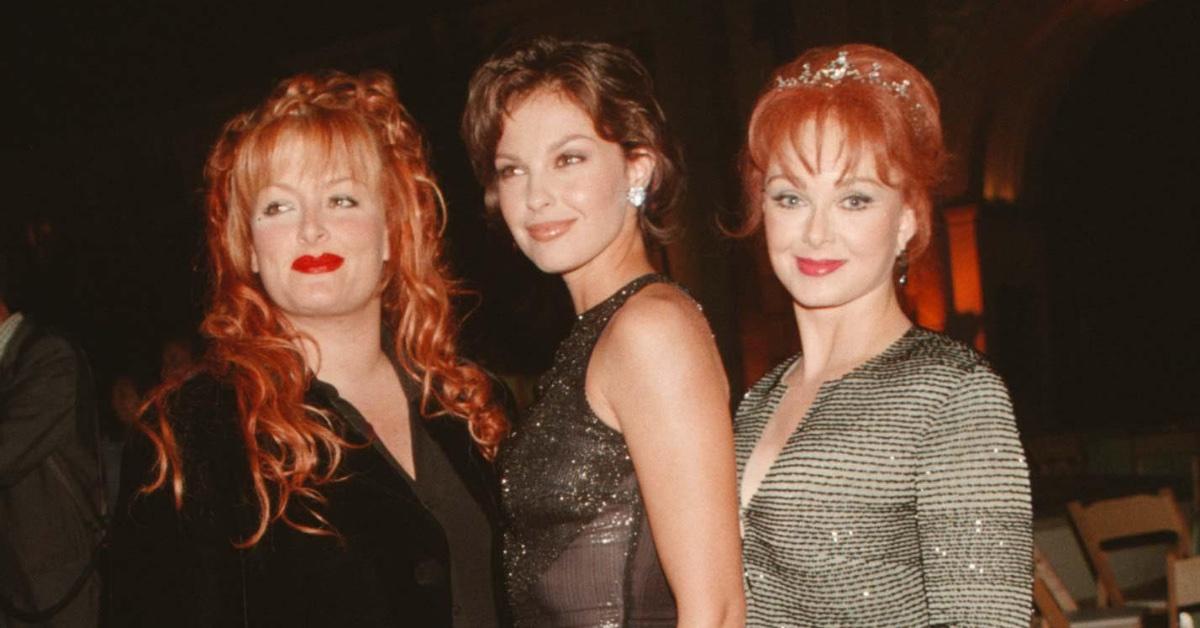Dozens Of Eurovision Stars Call For Israel's Ban In 2025

Table of Contents
The Artists' Concerns: Human Rights Violations in Palestine
Numerous artists cite Israel's treatment of Palestinians as the primary reason for their call for a ban from Eurovision 2025. Their concerns center around the complex and deeply contested issues surrounding the Israeli-Palestinian conflict. Specific concerns raised include:
-
The ongoing Israeli occupation of Palestinian territories: The occupation of the West Bank and the blockade of Gaza are frequently cited as major human rights violations. Artists argue that these actions violate international law and fundamental human rights principles.
-
Alleged human rights abuses: Reports of excessive force by Israeli security forces, demolitions of Palestinian homes, and restrictions on freedom of movement are among the specific human rights abuses mentioned by those supporting a Eurovision boycott.
-
Accusations of apartheid: Some artists have gone further, directly linking the Israeli government's policies to the principles of apartheid, drawing parallels to South Africa's past regime of racial segregation. This is a particularly contentious claim, fueling the intense debate surrounding the call for a ban.
The call for a boycott of Eurovision 2025 aims to pressure Israel to address these concerns and demonstrably improve its human rights record in the occupied Palestinian territories. The artists believe that participation in Eurovision should not come at the cost of human rights.
The Counter-Argument: Politics vs. Music at Eurovision
Opponents of the ban argue strongly that Eurovision should remain a politically neutral platform, focused solely on music and artistic expression. They raise several key counterpoints:
-
Maintaining Eurovision's neutrality: A core argument is that introducing overtly political considerations into the selection process would undermine the contest's fundamental nature as a celebration of music and cultural exchange.
-
Setting a dangerous precedent: Critics fear that a ban based on political disagreements could set a dangerous precedent, potentially opening the door to boycotts based on various other political issues, potentially destabilizing the event.
-
Accusations of antisemitism: A significant and sensitive point of contention is the accusation that the call for a ban is inherently antisemitic. This claim has been strongly refuted by many involved in the call for a boycott, who emphasize their focus on human rights violations rather than targeting any specific religious group.
The central debate revolves around whether Eurovision should be a space for implicitly or explicitly promoting human rights or if it should remain strictly an apolitical musical event. This question goes to the heart of the Eurovision 2025 debate.
The Impact and Implications of a Potential Ban
A potential ban of Israel from Eurovision 2025 would have far-reaching implications:
-
The future of Eurovision: The very structure and principles of the competition would be significantly impacted by such a decision, raising concerns about future participation and the potential for further boycotts.
-
The EBU's response: The European Broadcasting Union (EBU), which organizes the contest, will face immense pressure to address these calls for a ban and clearly define its stance on political involvement in the competition. Their response will shape the future of the event.
-
Public opinion and media coverage: Public opinion is sharply divided, with passionate arguments on both sides of the issue. The controversy is receiving widespread media coverage globally, highlighting the complexities of the issue and the deep divisions it has created.
The Role of the EBU in Addressing the Controversy
The EBU's response and any decision regarding Israel's participation will be closely scrutinized. Several key aspects require consideration:
-
EBU statement and policy: The EBU needs to issue a clear and comprehensive statement outlining its position on political involvement in Eurovision and the criteria used for selecting participating countries.
-
Reviewing existing rules and regulations: A thorough review of existing rules and regulations regarding political participation is crucial to ensure transparency and fairness.
-
Transparency in decision-making: The decision-making process must be transparent and accountable to maintain the integrity of the contest and avoid accusations of bias.
Conclusion
The call by dozens of Eurovision stars for Israel's ban from Eurovision 2025 represents a major turning point in the contest's history, highlighting a deep conflict between the desire for apolitical artistic expression and the undeniable human rights issues at stake. The EBU's response will shape not only the future of Eurovision but also set a precedent for how international competitions navigate complex political issues. This debate underscores the critical need for a serious and thoughtful discussion on the role of art in addressing human rights concerns and the potential ramifications of boycotting events on such a large scale. The ongoing conversation surrounding a potential Eurovision boycott remains a critical point of discussion. Let the debate continue responsibly, and consider your position in this important discussion surrounding the future of Eurovision.

Featured Posts
-
 Carriere Et Nominations Chez Societe Generale
May 14, 2025
Carriere Et Nominations Chez Societe Generale
May 14, 2025 -
 The Judd Sisters A Docuseries Exploring Family History And Relationships
May 14, 2025
The Judd Sisters A Docuseries Exploring Family History And Relationships
May 14, 2025 -
 Which Starter Pokemon Reigns Supreme A Generation By Generation Analysis
May 14, 2025
Which Starter Pokemon Reigns Supreme A Generation By Generation Analysis
May 14, 2025 -
 Pokemon Ash Gray Walkthrough Tips Tricks And Strategies
May 14, 2025
Pokemon Ash Gray Walkthrough Tips Tricks And Strategies
May 14, 2025 -
 Disney Snow White Jewelry Collection By Kendra Scott Budget Friendly Options
May 14, 2025
Disney Snow White Jewelry Collection By Kendra Scott Budget Friendly Options
May 14, 2025
